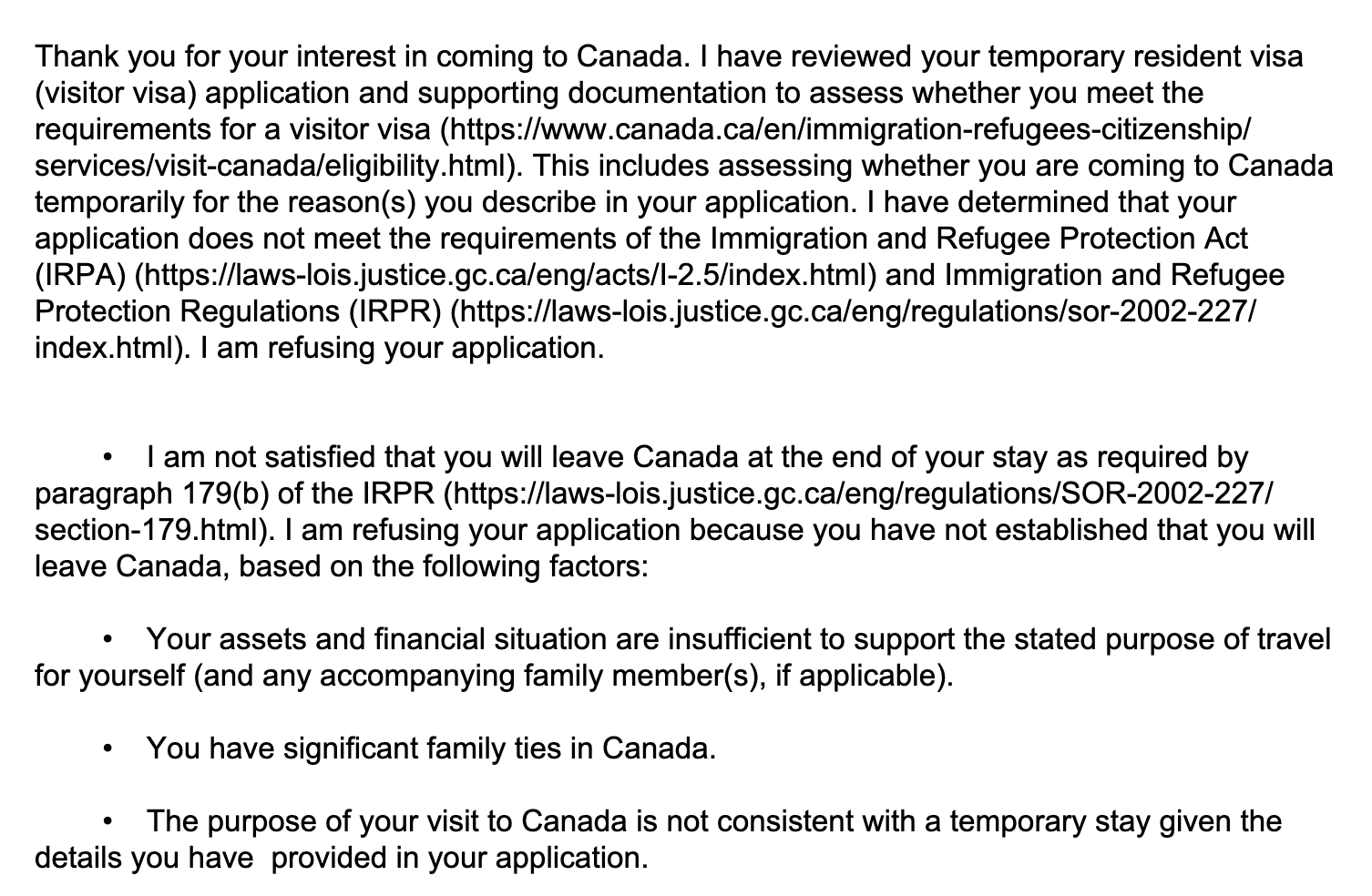I can provide some advice here, the same thing happened to my parents on one of their Canada visa applications. At the time of the application they had previously visited Canada on a visitor visa and left well before the 6 months that they had been granted on entry. They also had a valid US visa and had travelled to the US multiple times. No history of overstay, spotless clean record etc etc. And yet they were denied a visitor visa to Canada (this application was made in 2020, their Indian passport had expired so they applied for a new passport and a new visa). Goes without saying that I don't think very highly about the competence of IRCC and their visa processing officers, but I digress.
Getting back to the point and thinking about this dispassionately after emotions had cooled down, I think we made a few mistakes
- We had listed that they want to visit us and their grandchild(ren)
- We didn't attach a copy of their property records and all the bank accounts with the application
- We were perhaps a little bit complacent, given their previous visas and travel history
I also acknowledged that some of the concerns raised by the visa officer were irrefutable, mainly that of having strong family ties in Canada.
So instead I decided it was better for them to apply for a supervisa instead (I had actually originally asked my parents to apply for the supervisa and not the tourist visa but they being typical stingy Indian parents didn't want to pay upfront for the medical insurance). I wrote a letter of invitation and also challenged the previous refusal (respectfully), explaining that the purpose of the supervisa is to allow family members to stay together for an extended period of time and to therefore deny a visa based on close family ties was unfair and contrary to the terms of the visa program.
Along with this I highlighted their spotless travel record including specific dates for each previous international trip.
The last thing was to show strong ties to India and for this I did two things
- Had them collect property documents for all the parcels of land they own, have this translated in English and add an approximate market value of each property.
- Had them collect a summary of all their bank and demat accounts (trading) for the last 12 months and attached that to the application
- Lastly my father receives a government pension in India, this requires him to provide proof that he's alive in person every year. So I had him print the pension plan details and terms and highlighted and attached the relevant section.
- Paid for a supervisa medical insurance policy with a broker in Canada and attached the copy of the insurance policy and proof of payment
- I also promised to support my parents financially while they were here and added my income statements and previous year tax returns to show that I had the funds to back up my claim.
It took us some time to prepare an application which addressed the concerns that were raised in the previous refusal and also challenged the one which we believed though true was incorrectly applied. This time the super visas for my parents were approved, my father was approved for instantly however my mother had problems in the medical test as she has respiratory problems and needed to take the TB screening, but once the results came back and were processed, her visa too was approved.
Adding in another point which I forgot about when originally answering the question was that in the first application we had mentioned that the grandparents were coming to meet the grandchildren. Upon further reflection and comments from other people on forums, I think that's not a very good idea. A natural assumption for Indian people is that the grandparents will come and visit and bring gifts and help with the first few months for a newborn in the family. This can be misconstrued as the grandparents coming to Canada and providing childcare which is work and technically not allowed on a visitor visa, so it's best to not highlight this aspect. I'm not suggesting to hide this at all, but to not put additional weight or make this the highlight of the entire letter of invitation. Similarly if you/your partner is expecting, the details of their medical condition are not relevant to the visa processing officer or to the application.
Hopefully this helps, my takeaways were that sometimes we assume certain things and expect that the visa processing officer will make or understand the same assumptions. So upon refusal, I worked with my parents so that we documented every single aspect and prepared a stronger and more robust subsequent application.

